USAA hosts virtual poppy wall for Memorial Day
U.S. Army veteran and USAA VP of Brand Management Eric Engquist on the poppy wall going virtual for the second year in a row
When Bob Hope passed away in 2003 at age 100, he had conquered vaudeville, Broadway, radio, Hollywood, and even television during its infancy – but his greatest achievement wasn’t fame.
The star dedicated much of his nearly 80-year career to entertaining the troops, both at home and abroad, USO.org reported. Whether it was performing on the front lines, befriending injured soldiers or personally writing heartfelt letters home – he was committed to using his talents to give thanks for their sacrifice.
Earlier this year, Martha Bolton, a family friend who once wrote jokes for Hope, as well as his daughter Linda Hope, teamed up to write "Dear Bob: Bob Hope’s Wartime Correspondence with the G.I.s of World War II," which chronicles personal letters, postcards, packages and more sent back and forth among the comic and the troops.
"I found it very moving to re-read these letters again," Linda told Fox News. "… I was reminded of the scope of dad's involvement with the men and women he entertained, here at home and abroad. It reinforced the reality of how those relationships really affected his entire life."
Fox News spoke to Bolton about bringing the book to life and Hope’s great love for our servicemen and women.
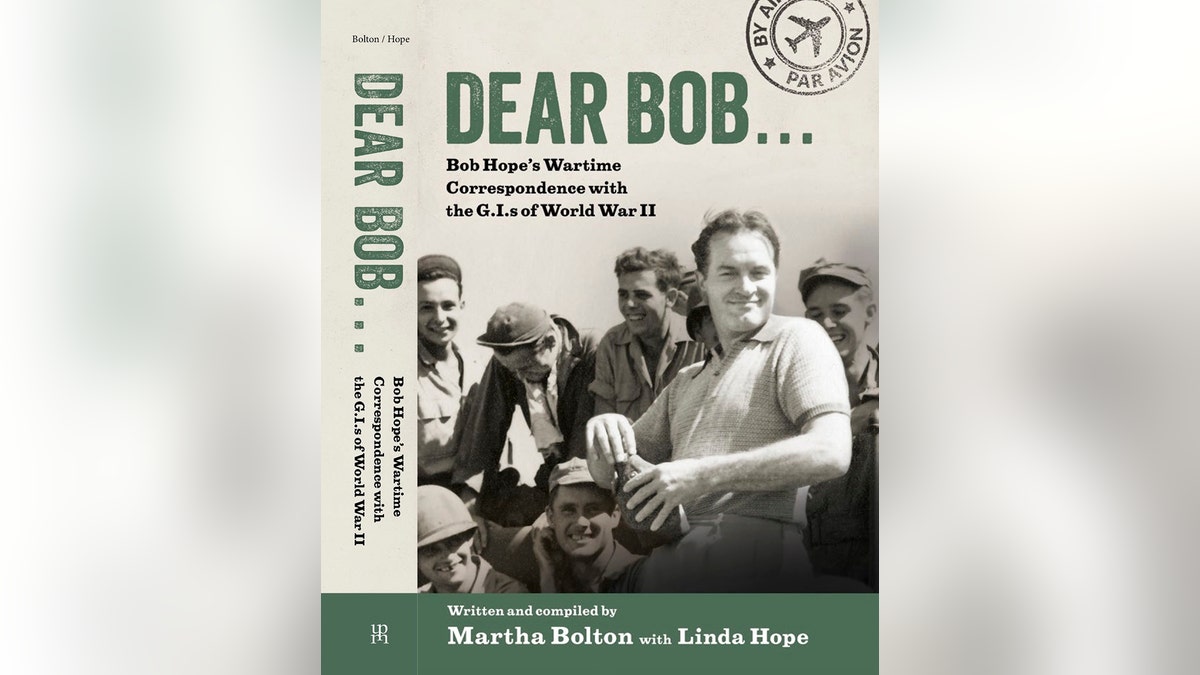
The book 'Dear Bob: Bob Hope's Wartime Correspondence with the G.I.s of World War II' was released earlier this year.
Fox News: What inspired you to write "Dear Bob" now?
Martha Bolton: We actually started working on it when Bob was alive. I had come across the letters he received from G.I.’s over the years and I was just so overwhelmed by its historical significance. I thought they also gave a look inside his heart. And there was so much there. There were funny letters, but also moving letters. It spanned the whole human experience. And it really showed Bob’s relationship with the G.I.’s.
I remembered I talked to Bob and asked if he ever considered putting these letters together for a book because they were so incredible. He agreed. But he also said that they were so close to his heart that he didn’t know if he could get through them again. So he suggested that Linda and I work on it. And we did.
And it was quite the project. At the height of World War II, Bob was receiving 38,000 fan letters a week. So there was a mountain of material. And he kept them all in these banker boxes… And unfortunately, Bob passed away. But we never gave up on the idea of working on this manuscript. We knew one day we would finish it… So we poured ourselves into this project and the process of selecting which letters to include in the book. But I’m very pleased with the results. I think, especially right now, we’re all looking for hope. And these letters give the same feeling that Bob gave all his life. That we will get through anything together.
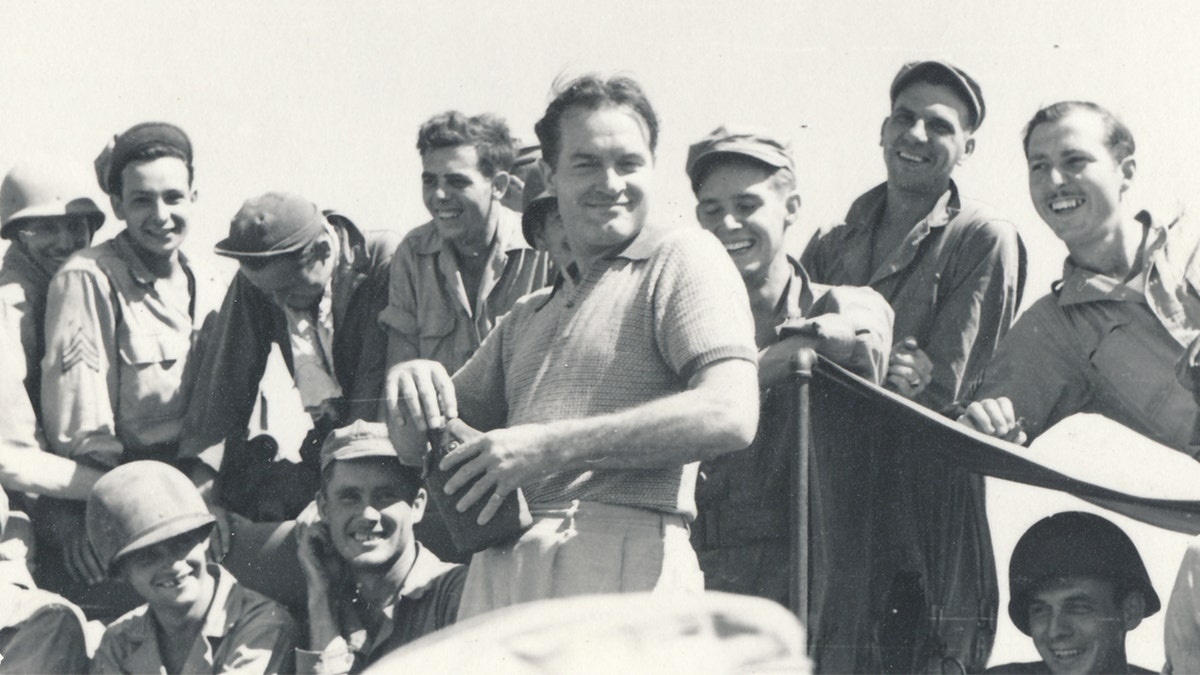
Bob Hope received up to 38,000 letters a week. (Courtesy of The Bob Hope Legacy)
Fox News: When did Bob Hope realize that he wanted to give back to our troops?
Bolton: His first military show was in 1941 and America wasn’t in the war yet. His radio producer suggested that he put on a show for the troops. Bob didn’t quite understand what he would be doing because we weren’t in the war yet. And he didn’t know how he could fit in. But when he walked on that stage and did his routine, the response was just overwhelming. The laughter, the tears, it was like this loud thunder. And he just fell in love with that audience. And it became his audience.
When he started getting letters from the G.I.’s, he truly understood the sacrifices they were making. And these weren’t regular fan letters. They were writing to their brother, their buddy. And you could see the bond that was being developed. And then he started receiving letters from loved ones who described how a soldier saw his show and was then killed the next day. So many were lost. And that had a tremendous impact on Bob. That feeling, that love and respect, never left him.
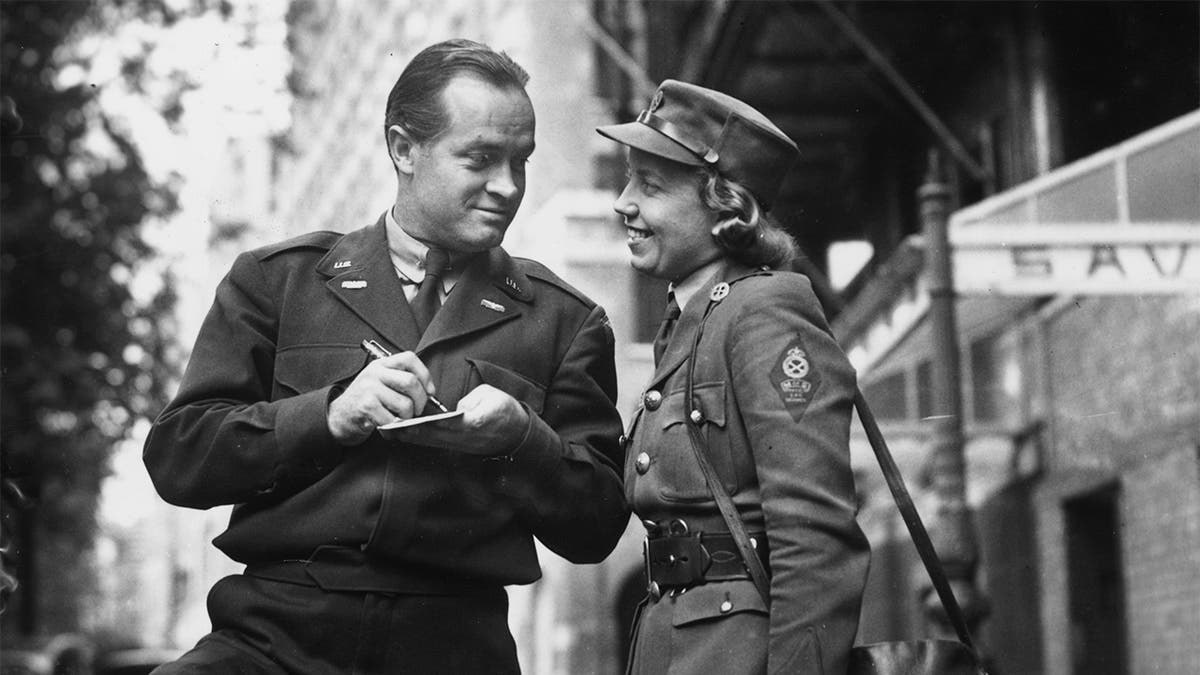
American comedian Bob Hope (1903 - 2003) signing his autograph for a woman of the Motor Transport Corps outside the Savoy Theatre in London, before departing to Germany to entertain the troops. Circa 1945. (Photo by Keystone/Getty Images)
Fox News: Bob would also write back. What did he tell these G.I.’s?
Bolton: He wanted them to feel like they were home. So he would share whatever was happening in America that they were missing out on. And it was something like, "Pete, hurry up and get home so you can enjoy this with me, too." The letters were real newsy. It was as if a family member or friend were describing what had happened this week. He would share the news with them, what trends were going on. And of course, he would always send good wishes for their safe return.
Bob would also sometimes swap jokes with them and at times, he and the [G.I.] would go back and forth. And he would ask them if they needed anything. But Bob was always friendly from the start. "Hey buddy, how you’re doing?" It’s pretty amazing.
Fox News: How much of an impact did these letters have on Bob?
Bolton: Oh, they were so close to his heart. He could hardly talk about them without choking up. They were some of his most cherished possessions. And he saved them all. These letters were from men and women that had seen him, and those from friends or families telling him that their loved one saw him before they were killed. I remember there was one show he put on where 60 percent of the audience were killed in the next battle. These are 18, 19-year-old kids. It’s such a powerful, emotional journey.
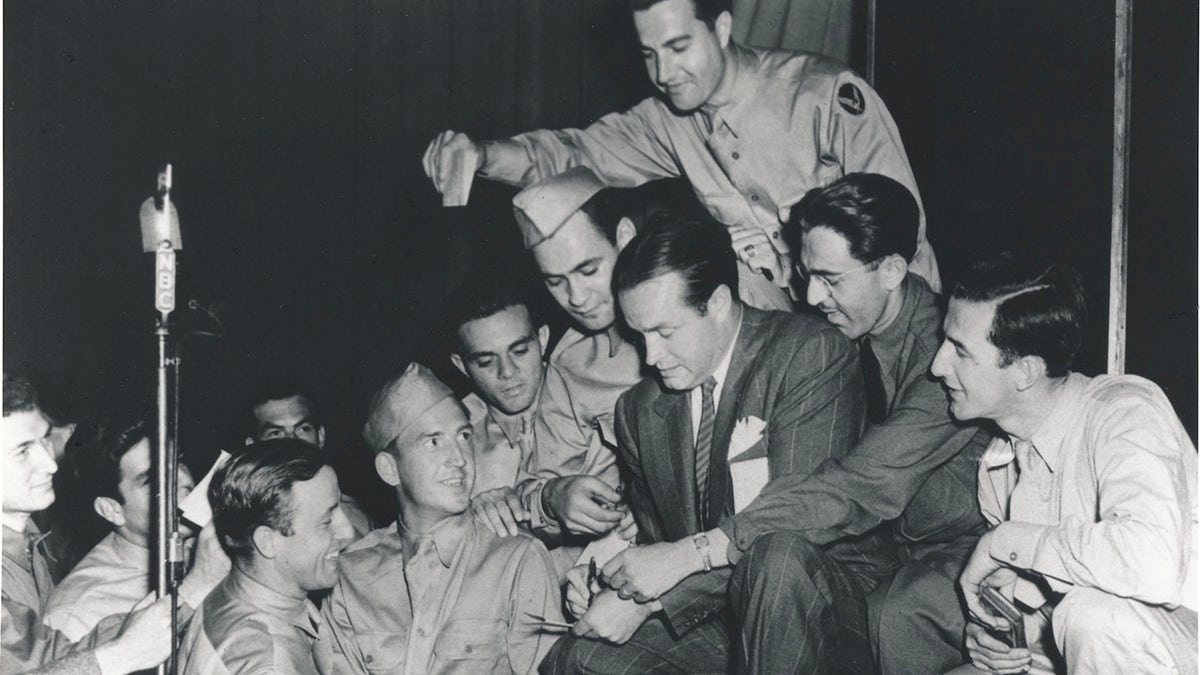
Bob Hope entertained American troops, as well as visited them at the hospital and befriended their loved ones. (Courtesy of The Bob Hope Legacy)
But not all the letters were heartbreaking. Some were funny and Bob really got a kick out of those. He had a great relationship with these veterans that was just so beautiful. And when a veteran did approach him in person, you could sense this mutual respect. But I truly had no idea how deep that respect was until I read these letters. And the book tells you why.
Fox News: Why do you believe Bob Hope, a star who was born in England, dedicated his celebrity to American troops?
Bolton: I think he saw the sacrifices that Americans - and allied forces - were making. He knew how much they were giving up. So he wanted to find a way to give back, even if it was carving out time from his day to write these letters and make sure they were sent. But he felt that was so insignificant compared to what these men and women were giving up.
And he committed to that. When Pearl Harbor got bombed and America was going into the war, he wanted to enlist. Roosevelt felt that his talents were better used to encourage the troops. And he went to every single engagement during every war until his death. He was 87 years old at his last military show. And he’s going as close as he could to the front lines and ducking the same incoming as the troops. All at age 87.
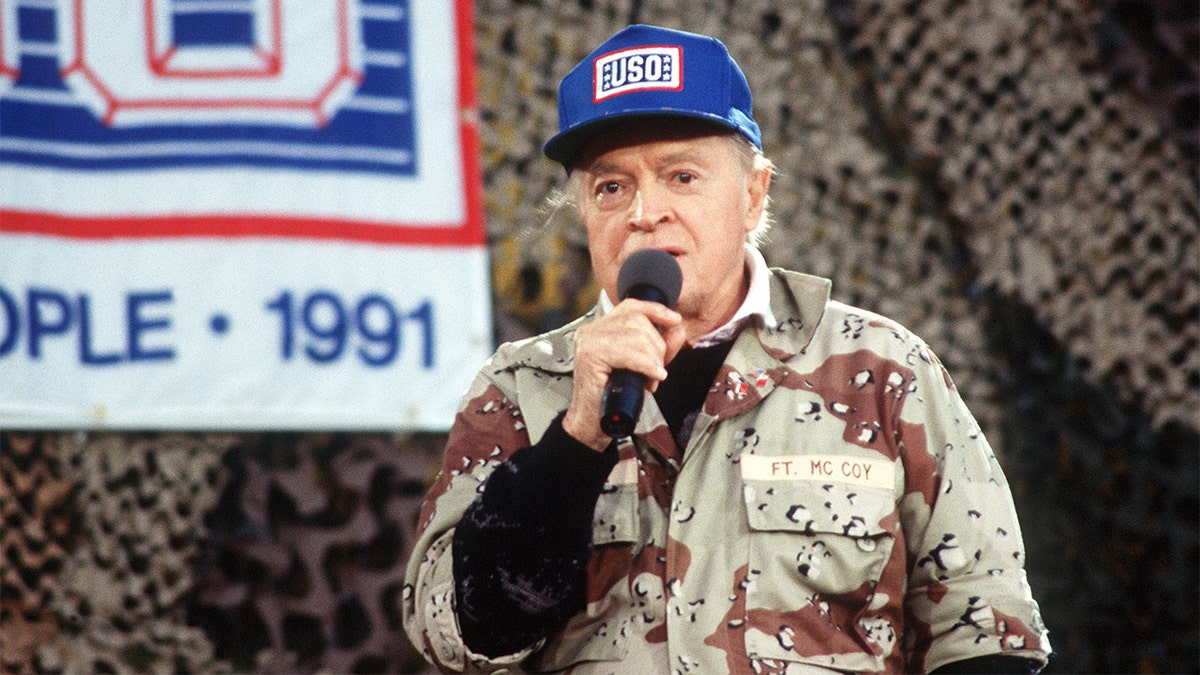
Entertainer Bob Hope performs for military personnel at the USO Christmas Tour, Operation Desert Shield during the Gulf War in 1990 in Saudi Arabia. (Photo by DoD/Roger-Viollet/Getty Images)
Fox News: Did Bob get to see any kind of action while entertaining the troops?
Bolton: Oh yes, and the troops would bring that up in their letters. They’ll write and say, "That was quite an event you held. Sorry about the bombings being so close." There were times when he had to be whisked away from the stage and take shelter. He had several close calls. He was even in an airplane crash down in Australia. His plane was forced to crash-land or it would have somersaulted and exploded. That was in 1944 if I’m not mistaken. And that didn’t stop him.
Fox News: In preparing this book, which letter touched you the most and why?
Bolton: There’s one, in particular, that’s hard to read because it’s so emotional. It goes like this:
"Dear Bob - I'm writing to you because my husband was one of the soldiers you brought a little of home to Sicily. It was the only entertainment he had during his nine months of active service overseas. And now he will never see any other. Yes, I mean that he was killed in action.
"He didn't die a hero. He never did anything spectacular. He just did his duty as best he could. His name will never go down in history as being great. And yet he was to me, and I'm very proud of him. I received a letter from his commanding officer telling me what happened. It seems that on the night of March 17, they were on the frontline at Anzio waiting to be relieved.
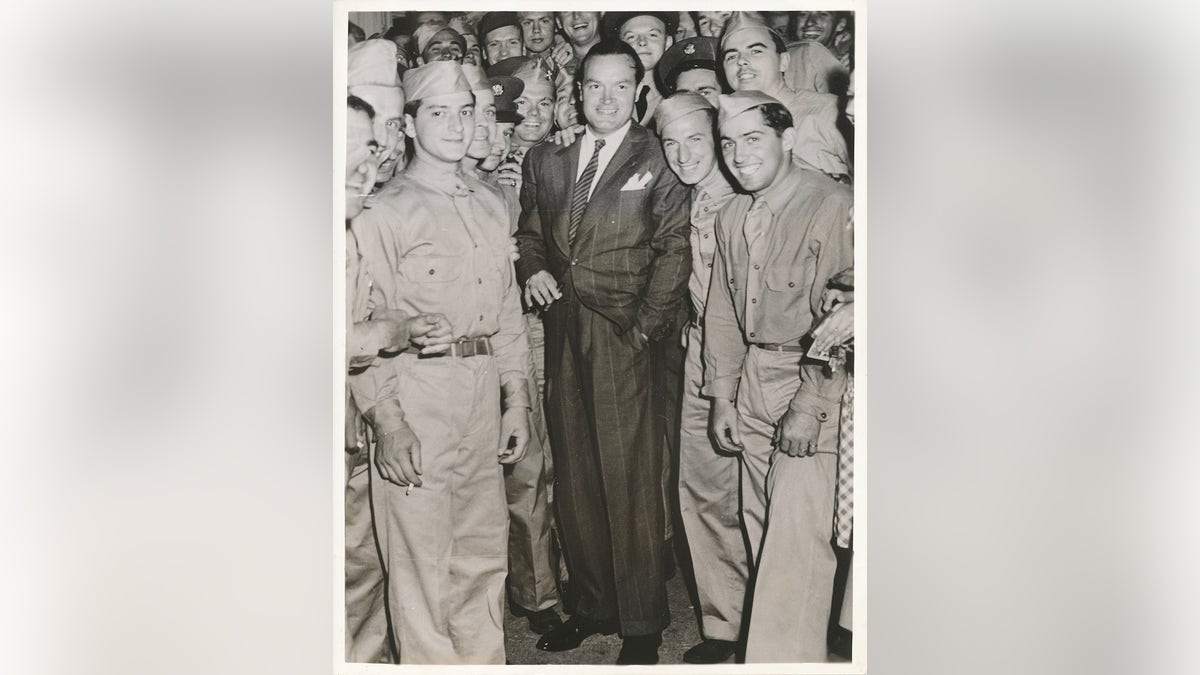
Pal Martha Bolton described how some of the letters Bob Hope received moved him to tears. (Courtesy of The Bob Hope Legacy)
"Pete, my husband, was out of his foxhole, checking on the men in his platoon to see that they were ready to leave the minute the relieving unit arrived before he could get back to his foxhole. The Germans fired several rounds of artillery. One hit close to Pete and several pieces of shrapnel lodged in Pete's chest. I'm told he died instantly… My husband was like millions of others. He didn't want to leave home and go to war, but there was a job to do.
"… So he went cheerfully. I wrote to you because my husband wrote to me about your show. You seemed like a friend. And you saw him. I guess that’s why I’ve told you all about it."
Fox News: Aside from shows, what else did Bob do to honor our troops?
Bolton: He would visit hospitals because he wanted to make them laugh. He wanted to cheer them up. He would walk in, joke around with them, even get in bed with them and play chess. If someone felt horrible, he would be messing around with them, like tickling their toes from the cast, just like a buddy. He wanted them to feel normal. He wanted to make them feel that it was OK to laugh.
KIM NOVAK EXPLAINS WHY SHE LEFT HOLLYWOOD: 'I FELT LIKE I WAS LOSING MYSELF'
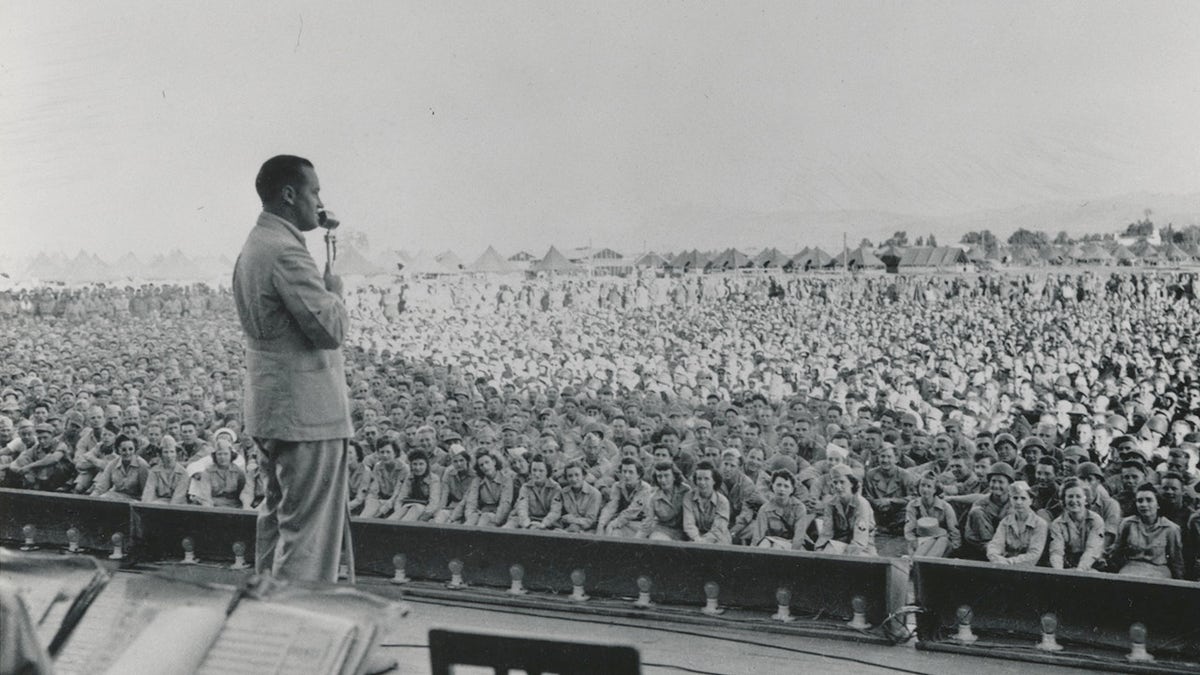
When it comes to entertaining our troops, many celebrities have followed in Bob Hope's footsteps and continue to keep his legacy alive. (Courtesy of The Bob Hope Legacy)
After his shows were over, he continued to interact with the troops and make them laugh as much as possible. You saw them interacting with Bob and he just loved it. They were all having such a good time… Some of [the soldiers] were pretty broken at times. In their letters, they would describe how they didn’t feel like laughing because they lost all hope or the doctor gave them some news. But then they would write again and thank Bob for lifting their spirits.
Bob loved talking about his letters. But he would describe how hard it was to read them because they were so emotional. He would call the troops his sons and daughters.
Fox News: Did he receive any funny requests?
Bolton: There was one who requested fruitcake *laughs*. And a lot of them would ask him to set up a date with one of his celebrity friends. There was one soldier who shaved off his goatee and mailed it to Bob… In one of his shows, Bob said, "If you can’t get any paper to write on, put your thumbprints on a paper bag and mail it to me." He received a paper bag that was full of thumbprints. A lot of Bob lookalikes wrote in and he got a kick out of that, too.
CLICK HERE TO SIGN UP FOR THE ENTERTAINMENT NEWSLETTER
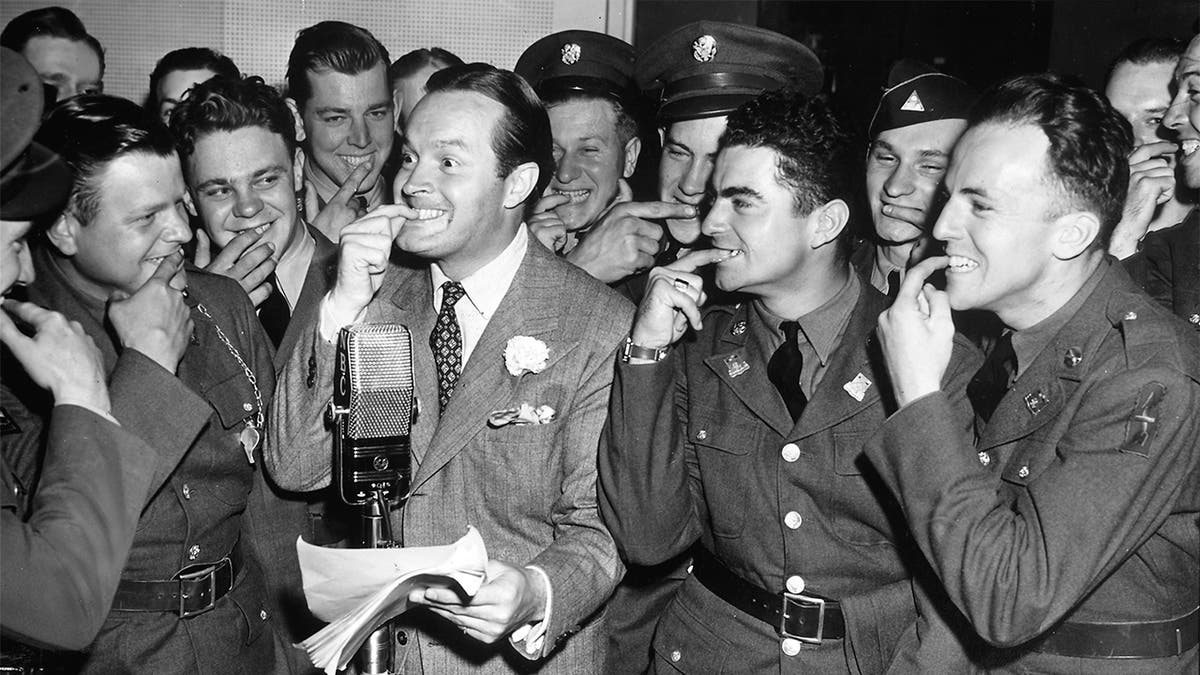
Bob Hope showing WWII soldiers how to use Pepsodent toothpaste by using his fingers during a radio show at NBC Studios. (Photo by Mark Kauffman/The LIFE Images Collection via Getty Images/Getty Images)
CLICK HERE FOR THE FOX NEWS APP
Fox News: In honor of Bob Hope, how can we give back to our troops?
Bolton: Gratitude goes an awful long way. And I think that resonated with Bob all his life. It’s important that we notice their sacrifice. Bob saw it and he delivered his thanks to the masses. I think the driving message of this book is don’t take life for granted.
… In life, there may be times where we feel like we’re sacrificing something. We could be stuck in traffic or the air conditioner went out on a really hot day. That’s nothing compared to what these men and women gave up and continue to do so. Bob once said, "I saw your son and your husband, your brother and your sweetheart. I saw how they worked, played, fought and live. I saw some of them die. I saw more courage, more good humor in the face of discomfort, more love… and more devotion to duty…"
All he wanted to do was give these men and women hope.
The Associated Press contributed to this report.















































